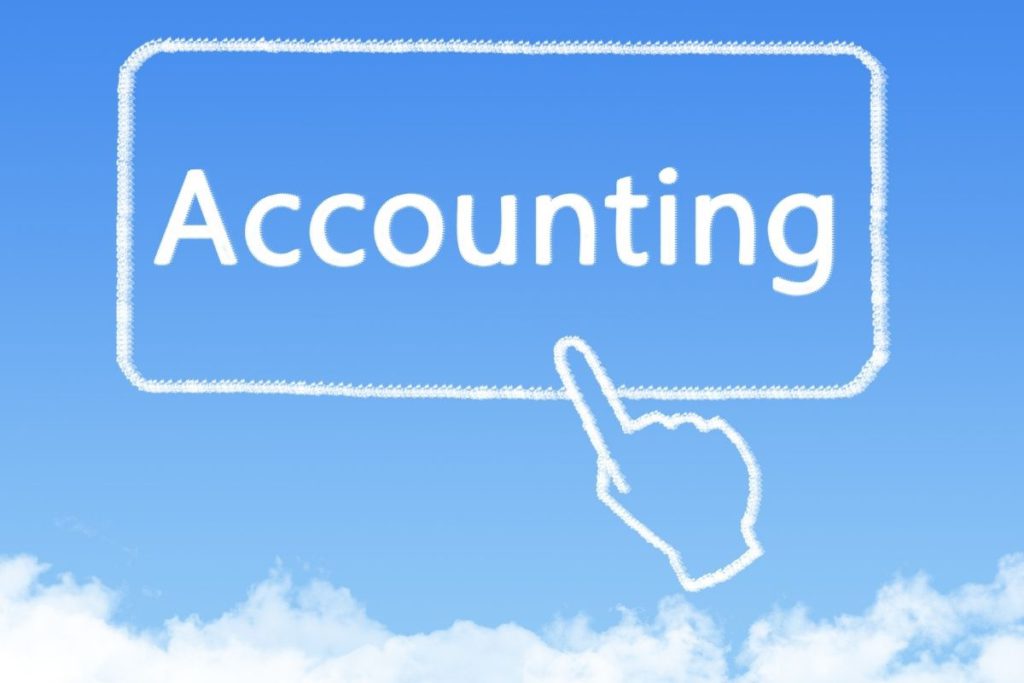Cloud accounting refers to performing basic accounting tasks, such as managing and balancing ledgers, using software that resides in the cloud and is often provided as a service. Cloud accounting refers to the use of accounting software and data hosted on a third party server and accessible via an internet connection from anywhere on any device. Cloud Accounting gives you 24/7 access to your key business numbers from anywhere you have Internet access, eliminating the need to work from a central computer.

If you want your business to take advantage of remote or flexible working, cloud accounting allows management teams and finance departments to access all key numbers from anywhere they have internet access. Cloud systems allow accounting teams, other employees and clients to connect using a wide range of applications and software such as QuickBooks, Lacerte and more. Compared to manual spreadsheet-based processes and desktop accounting, cloud accounting offers many benefits to accountants and businesses in general. Cloud computing and accounting software have changed the way accounting is done in office and business environments.
Instead of using spreadsheets or programs that reside on accountants’ computers, many companies are turning to cloud-based accounting solutions, which drastically reduce the time it takes to perform basic functions. Unlike traditional accounting, which requires manual entry of large amounts of data, cloud accounting significantly reduces the time accountants spend on basic tasks. Cloud computing software reduces the workload of accountants, allowing them to provide more services to clients. Cloud computing allows accountants to spend less time on administrative tasks, such as data entry, searching documents, and more time on important revenue-generating tasks.
Many accountants also cite the ability to automatically enter data as an important time saver when migrating to the cloud. With cloud accounting, accountants can significantly reduce their reliance on paperwork by invoicing clients via email, eliminating printing and shipping costs and speeding up the payment process. Instead of being forced to use an expensive CPA that doesn’t offer much in terms of technical support, those using cloud solutions can call their accountant directly when they need it. Accounting firms using cloud computing can quickly adapt as they can still securely access client data wherever they work, meaning they can be a mainstay for clients during times of crisis.
Cloud computing and cloud accounting software allows companies to quickly organize resources from cloud managers, scaling quickly and easily as demand for accounting services increases. With the advent of new technological opportunities, organizations around the world are exploring the cloud, especially with the recent surge in demand for work anywhere from anywhere and other flexible work mechanisms. Today, in our view, the pursuit of the latest technology is leading both small and large companies to store their data in the cloud and host their favorite software in the cloud, giving rise to a whole new genre in the industry: cloud hosting providers. Over time, traditional U.S. accounting firms like Intuit saw the benefits of the cloud and moved to the cloud.
While early proprietary accounting software offered important advantages over manual methods such as paper ledgers, these systems could not match the flexibility or scalability of cloud software. Like other cloud-based software, cloud-based accounting systems have offered businesses revolutionary flexibility by reducing capital costs and maximizing the use of human resources. The benefits of using a cloud-based accounting system are similar to those of other cloud-based software, but they are even more important since financial data is at the core of everything a business does.
Accounting data security is perhaps the most important of the many benefits of cloud computing and accounting solutions. The best cloud systems have robust reporting capabilities that can generate charts, variance reports, key indicators, and many other financial snapshots to create a financial dashboard for your business. The advanced real-time data processing capabilities of the accounting cloud make the accounting cloud ideal if your business needs quick access to detailed financial breakdowns, management information, and key performance indicators (KPIs).
In addition to reducing accounting processes, cloud computing provides greater accuracy and automates some of its functions to simplify operations. Simply put, you can reduce your operating costs by running your business virtually and efficiently with IT solutions and cloud-based accounting software. A key benefit of cloud-based accounting applications is that you can leverage your accounting software stack to better suit your business needs and improve the efficiency of your workflows.
Changing any process (especially those involving sensitive data) can be tricky, not to mention that cloud computing is probably not a specific area of expertise for your clients. In such cases, IT cloud services and accounting solutions provide an improved and faster recovery process for certain data and information. Accountants can’t just adopt cloud computing, but they must also consider the changes in the way they work.
Cloud computing, the latest trend in accounting, is expected to make accounting applications easily accessible, save time and reduce costs. As noted earlier, almost all types of software are now available in the cloud. 24/7 network availability ensures that companies can wisely invest in various accounting and cloud computing services in the era of modern technology.
Such modern technologies include cloud-based software that ensures that all stakeholders are held accountable for their actions. Cloud accounting software provides people and even businesses with automatic update times that ensure they don’t need complicated IT maintenance. Cloud-based accounting software offers fast ways to recover important data for all types of emergencies, from power outages to unpredictable natural events.
When choosing cloud-based accounting software, companies should look to reputable vendors that offer cloud solutions systems built from the ground up to run as a service, not just redesigned to work remotely on servers. If your business is already at this stage and you are looking for accounting experts to work in finance and account management, look for providers that offer specialized accounting services for small businesses. Moving books to the cloud also means you can integrate your software with other business tools.
